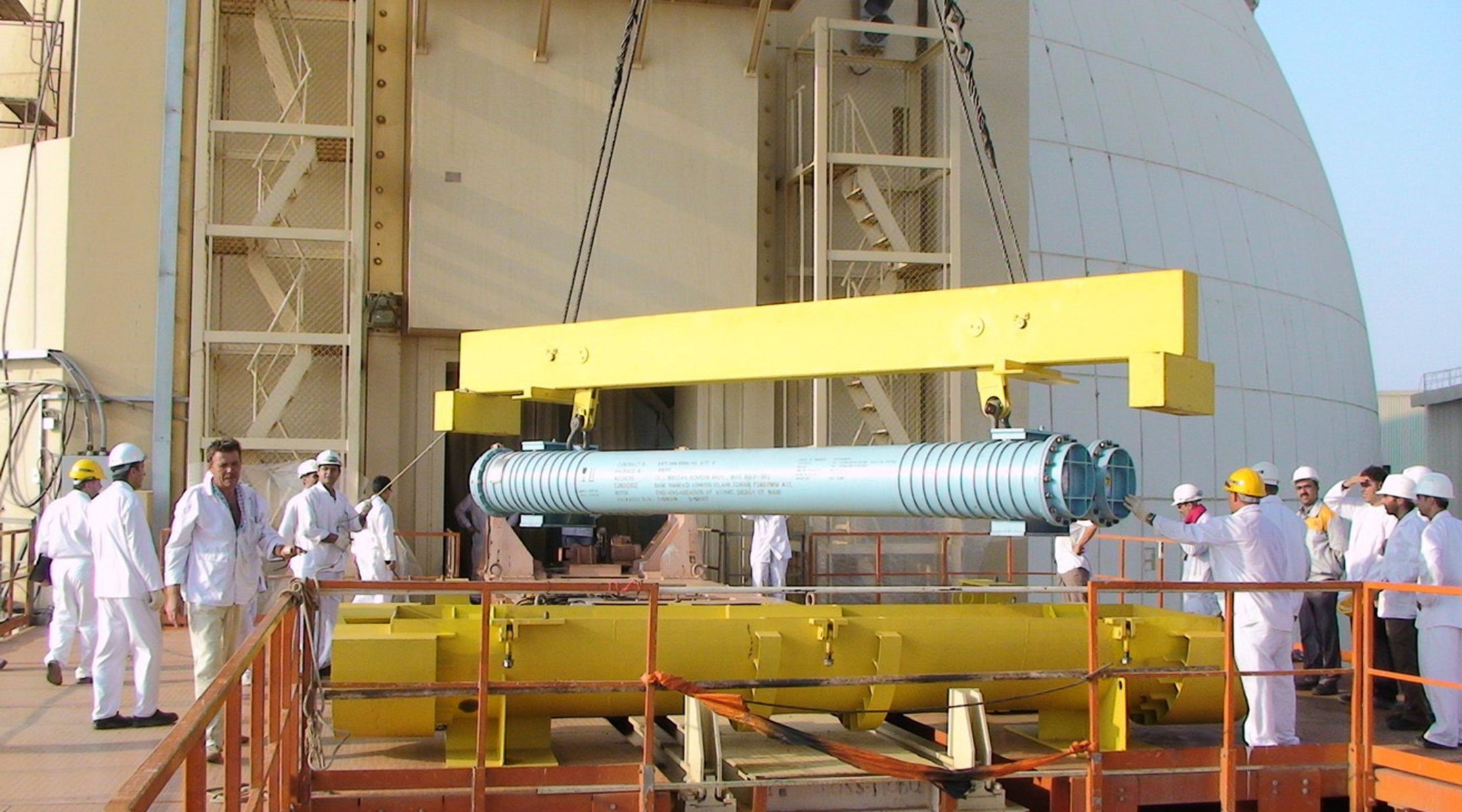WASHINGTON (JTA) — U.S. negotiators are not entering the latest round of nuclear talks with Iran with optimism, a top U.S. official said, citing Iran’s insistence on maintaining its uranium enrichment capability.
“Coming into New York, I think many of us were not very optimistic,” said the senior administration official speaking to reporters Thursday in New York, where the talks are underway on the sidelines of the United Nations General Assembly.
The transcript distributed by the State Department did not identify the official.
Nonetheless, the official described two days of bilateral meetings with Iranian officials earlier this week ahead of talks between Iran and the major powers now talking place as “constructive” and including a “lot of hard technical work.”
The official identified Iran’s insistence that it maintain its 20 percent enrichment capability as a stumbling block.
“The Iranians have said over these many days and weeks how reasonable and flexible they are in these talks, and about how their current capacity should be acceptable,” the official said.
“But the status quo is not doable for any of us,” the official said. “It is not doable for either side. The world will agree to suspend and then lift sanctions only if Iran takes convincing and verifiable steps to show that its nuclear program is and will remain exclusively peaceful.”
The deadline for the talks, which seek enforceable guarantees against weaponization in exchange for sanctions relief, is Nov. 24.
The powers negotiating with Iran have said that a 5-percent uranium enrichment capability is acceptable, while Iran insists on 20 percent – short of the 90-plus percent it needs for weaponization, but, according to experts, it is only a step or two from achieving such capacity.
Israel opposes any enrichment capability for Iran.
“At the end of the day, Israel will have to make its own judgment about an agreement, as will every other country in the world,” the U.S. official said. “And I understand that, but I also believe that the president of the United States will only sign off on an agreement that he believes is good for the world’s security, including Israel.”
The official said President Obama had no plans to meet with his Iranian counterpart, Hassan Rouhani, during the General Assembly. Last year, Obama broke decades of silence between U.S. and Iranian leaders with a phone call to Rouhani around the time of the G.A.
JTA has documented Jewish history in real-time for over a century. Keep our journalism strong by joining us in supporting independent, award-winning reporting.






